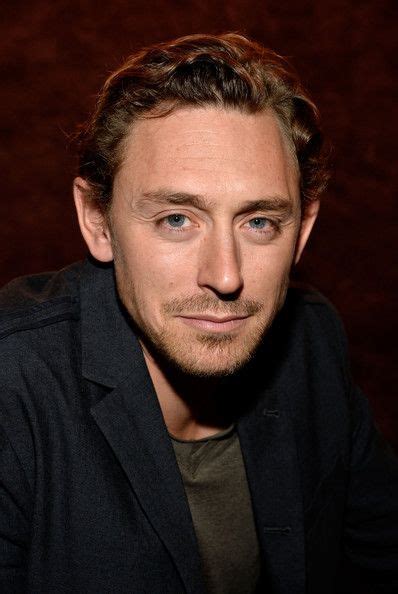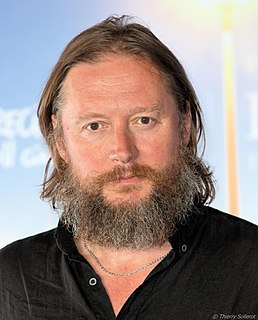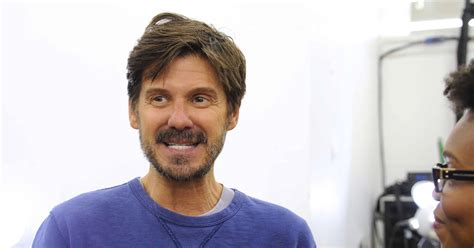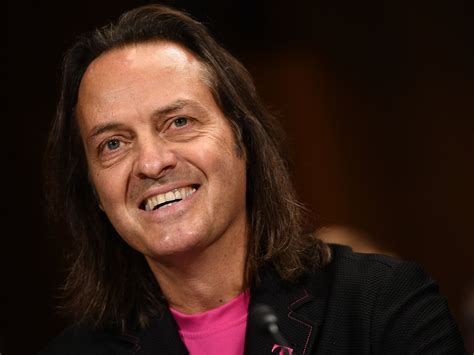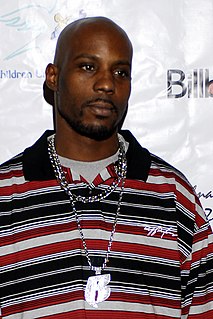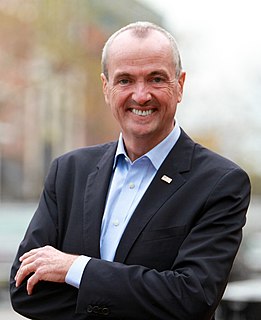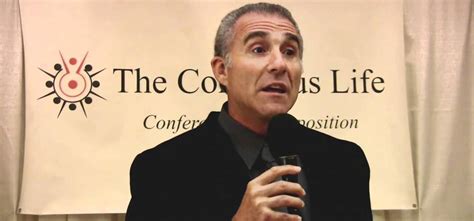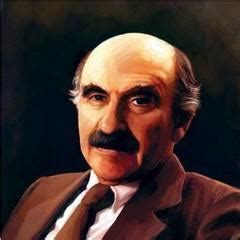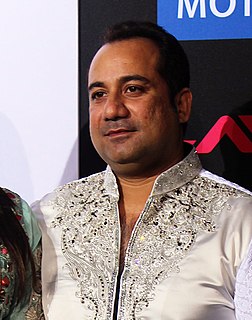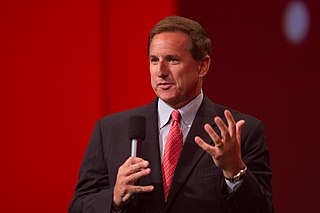Top 1200 Airline Industry Quotes & Sayings - Page 13
Explore popular Airline Industry quotes.
Last updated on October 17, 2024.
London is the most multicultural, mixed race place on Earth. And I love that. I grew up in a neighborhood in London where English wasn't necessarily the first language - maybe because of that, I love to travel. Every penny I've ever saved has been spent on airline tickets to different corners of the world. I think that's partly from growing up in London. I've taken that bit with me - this ability to fit in with any culture and be fascinated and respectful with any culture all started from growing up in London.
This new England we have invented for ourselves is not interested at all in education. It is only interested in training, both material and spiritual. Education means freedom, it means ideas, it means truth. Training is what you do to a pear tree when you pleach it and prune it to grow against a wall. Training is what you give an airline pilot or a computer operator or a barrister or a radio producer. Education is what you give children to enable them to be free from the prejudices and moral bankruptcies of their elders.
The problem with the British film industry is that it's really the American film industry, or a small branch of in lots of ways because of the common language. But it's great to see some individual voices still there. I think I probably gravitate towards a slightly more European, auteur model rather than the studio thing. I think it would be great if British films were a little bit more auteur driven.
Santa Claus and the Easter Bunny should take a few pointers from the mutual-fund industry. All three are trying to pull off elaborate hoaxes. But while Santa and the bunny suffer the derision of eight year olds everywhere, actively-managed stock funds still have an ardent following among otherwise clear-thinking adults. This continued loyalty amazes me. Reams of statistics prove that most of the fund industry's stock pickers fail to beat the market.
I work at a record label where I have archives. These things [memorabilia] occurred and are important to somebody, and they're important to me. I find the record industry largely repellent. This music, the Teen Idles, all of that stuff, is important to me. I don't have lawyers, an agent or a manager. However I find the music industry largely repellent. I just make records because that's what I love to do. So I think that era, those pieces of media, I keep in my collection.
I didn't know I wanted to be a hairdresser. I was always interested in fashion and imagery in a very naive way, but it was always an attraction, like glitter balls. This was in the late '70s, early '80s, so it wasn't like today, where you kind of know all about the industry. Fashion was a very insider industry then - it was very closed. So I didn't really know what I wanted to do.
T-Mobile is a young, consumer-driven business, and the average age of my customer outside of Bellevue is 27 or 28. They like outspoken, frank discussion. There was an event where it started to come together, I thought the audience would only care about the MLB guys, but they wanted to know what was on my mind. And I literally snapped about the state of the wireless industry. Over the next 24 hours, there was a lot of stuff that was coming out of my mouth that was meant to stay in Vegas, but it hit a chord. It was an action statement for me that I was going to fix this industry.
I was not interested at all in Formula One when I left; I was very busy with my airline. But slowly I started missing the adrenaline rush and the driving of such fantastic cars at the limit. In reality this urge never disappears when you're a top driver, because I think we're a different breed of people, we need to take chances, we need to push ourselves to the limit all the time, that sort of thing. It stays with you, although you can kill it by losing motivation or other things in your life, but it never leaves you forever.
Progress has brought us both unbounded opportunities and unbridled difficulties. Thus, the measure of our civilization will not be that we have done much, but what we have done with that much. I believe that the next half century will determine if we will advance the cause of Christian civilization or revert to the horrors of brutal paganism. The thought of modern industry in the hands of Christian charity is a dream worth dreaming. The thought of industry in the hands of paganism is a nightmare beyond imagining. The choice between the two is upon us.
Record industry's not so much against artists, but certain people are just wicked people that sit up in the industry who go against the artist. The thing is, if you're in the recording business, where's our health benefits? Where's the royalties from when you put stuff on labels in different countries? And now, with all these 500 cable channels, you want your mechanical royalties, your licensing. There's so much technology that you've got to stay on top. They always try to tell you, "Oh, don't worry about the business side, just do the music."
Luckily for me, most of my work is through a brand or client who approaches my agent. Before I began modeling, I never realized how many barriers there were for people with disabilities within the industry. I didn't realize how much prejudice and ignorance existed. That made me even more determined to break down the barriers and to wake up the industry to the fact that beauty shows up in all different shapes, sizes and abilities.
Filmmakers need to give the audience that something extra, an incentive to spend money and go to the multiplex - the ticket prices are high. Otherwise they'd just stay home, buy DVDs or download movies. But if there were only big budget movies it would be impossible for the film industry to survive. So I emphasize the importance of mid-range films. But those films need the support of theatre owners. The theatre chains have to have the vision to realize the need to support smaller films for the growth of the domestic film industry.
I do feel like I owe something, but not to the industry. When you say "industry," I think of a group of people who don't really care much about you and treat you as a commodity. So, in that regard, I don't feel like I owe anything. But the people who've always been supportive of me and have always seen me for my greatest potential-those are the people who I feel like I owe something to. I feel like I am their voice. I owe it them to represent them in a way that they can be proud of.
With the communication internet, whole industries have been disrupted. You're in the publishing industry, you understand that. Before, we had newspapers, magazines - now you're on the web. I'm in book publishing. I don't have to tell you what's happened to us. Television has taken a hit. The music industry. But, thousands of new businesses have emerged on this new communication revolution platform. Not just Google, Facebook, and Twitter. There are thousands of operations. Businesses that are doing the platforms, the apps. They're mining the big data. They're creating the connections.
How would you describe the difference between modern war and modern industry-between say, bombing and strip mining, or between chemical warfare and chemical manufacturing? The difference seems to be only that in war the victimization of humans is directly intentional and in industry it is "accepted" as a "trade-off." Were the catastrophes of Love Canal, Bhopal, Chernobyl, and the Exxon Valdez episodes of war or of peace? They were in fact, peacetime acts of aggression, intentional to the extent that the risks were known and ignored.
I believe that space travel will one day become as common as airline travel is today. I'm convinced, however, that the true future of space travel does not lie with government agencies -- NASA is still obsessed with the idea that the primary purpose of the space program is science -- but real progress will come from private companies competing to provide the ultimate adventure ride, and NASA will receive the trickle-down benefits.
I think people in the fasion industry need to listen more and not look the other way when someone has a voice. We need to stop sending girls and boys to photographers or professionals who are known to be abusive. There should be a much more controlled environment in place for young models to protect them, and this should be led and supported by professionals in the industry. We need to create an environment in which models feel safe sharing information about their on-set experiences, instead of being silenced.
I think the beauty of the film industry is that if another person tries to become another person or act like another person or imitate another person, they don't really get too far. When that person starts to realize who they are and what they can bring to the table, they start to blossom and grow. With that, it's not so much me looking towards my predecessors who have paved the way in the industry - it's more getting inspired. I get little bits and pieces of what I can take from any and everybody.
A personal note to the Founding Fathers: We're sorry. We blew it. You made it possible for us to live free and we blew it. We've given up nearly every personal liberty in the name of a false sense of security sold to the masses by the same type of maniacal government about which you warned us and against which you fought so bravely. We now have to ask permission to take a leak on an airline flight. We never deserved you.
Take pandemics. There could easily be a severe pandemic. A lot of that comes from something we don't pay much attention to: Eating meat. The meat production industry, the industrial production of meat, uses an immense amount of antibiotics.We're now running out of antibiotics that deal with the threat of rapidly mutating bacteria. A lot of that just comes from the meat production industry. Well, do we worry about it? Well, we ought to be.
Since the 1920s, virtually all continuing medical and public health education is funded by pharmaceutical companies. In fact, today, the FDA can't even tell health scientists the truth about vaccine contaminants and their likely effects. The agency is bound and gagged by proprietary laws and non-disclosure agreements forced upon them by the pharmaceutical industry. Let us not forget that the pharmaceutical industry, as a special interest group, is the number one contributor to politicians on Capital Hill.
We need to reverse three centuries of walling the for-profit and non-profit sectors off from one another. When you think for-profit and non-profit, you most often think of entities with either zero social return or zero return on capital and zero social return. Clearly, there's some opportunity in the spectrum between those extremes. What's missing is the for-profit finance industry coming in to that area. Look at the enormous diversity of the for-profit financial industry as opposed to monolithic nature of the non-profit world; it's quite astonishing.
The oil industry is a stunning example of how science, technology, and mass production can divert an entire group of companies from their main task. ... No oil company gets as excited about the customers in its own backyard as about the oil in the Sahara Desert. ... But the truth is, it seems to me, that the industry begins with the needs of the customer for its products. From that primal position its definition moves steadily back stream to areas of progressively lesser importance until it finally comes to rest at the search for oil.
It's hard to find people to trust in the record industry, always. It's an industry with a lot of bullshit. There's a lot of people who are in positions of power that really know nothing and care for nothing. So I think, yeah, you learn pretty early on that you've really got to trust yourself more than anybody else, and that nobody's going to care about what you do more than you.
In a business that has exploited and ignored our people I have only found dead-ends. We need romantic comedies, gross-out and mockery comedies, horror and thrillers, teen movies and love-stories. All these and more will be a positive step towards the future of Native Americans in the world and film industry; an industry that that offers us not only the chance to play the parts of heroes, love interests and warriors, but also of villains, dorks and dangerous, brokenhearted products of circumstance.
There are shows, a lot of small cable shows like Breaking Bad, where in the general population nobody watches them really, but everybody in Los Angeles in the industry watches them, and to get a small role on a show like that actually, in some respects, advances your career more than having a huge hit role on a genre show because they are somehow dismissed as a secondary market in this industry
I must say that when I first learned of the existence of the Australian Greenhouse Office, I assumed it was responsible for supplying tomatoes to the Parliament House kitchen. But, no, as I soon learnt as industry minister, it was in fact a government funded redoubt of veritable soldiers in a war against carbon dioxide. The zealotry and obsessive passion of these warriors in the battle against the apparent evils of carbon dioxide remains a curiosity to me. After fighting these people for three years as industry minister, I really did wish they would just go away and grow tomatoes.
Unlike someone like Tom Hanks, or U2, the comics industry is not a thriving industry and we all need to keep and expand our audience. The best way to do that is to keep the fans we have happy and to keep them excited about our next projects so they'll keep following our work. The best way to do that is to continually engage them in conversation. I don't mean to sound flippant by any means. We're not being nice to our fans because we have to.
Social media has had a huge impact on the industry. Models now have voices. We are connected directly to millions of people, and we are no longer just pretty faces modeling clothes. This has allowed us to reach a broad audience. This platform for models to connect directly with their fans has started to shift the power dynamic in the industry, but there's still a long way to go. I think we are heading in the right direction, as more people start to see the value in inviting models in the creative and collaborative process.
It wasn't a case of me sitting down and thinking, right then, what shall I do with my life? Airline pilot? Plumber? Guitar manufacturer? Writer .... yeah, writer. I've always loved writing, from a very early age--I guess I was writing my first stories when I was still in single digits. It progressed, and the love of writing grew in my mind and is still growing. Doing it full-time, there are different stresses and tensions, and the business side of it comes to the fore sometimes. But I still love it, and I'm always thankful that I can do what I do and make a living from it.
A tobacco industry has been a fairly linear and predictable industry. You know what's going to happen every year. You know from time to time you are going to have a tax increase, you are going to have regulatory restriction, but, as it applies to everybody, I think we are doing very well. But now it's much more technology-driven. Competitors other than our traditional competitors can come in, whether legitimate or fly-by-night ones, and you have to anticipate all those things. The whole organization has to gear up to this new reality and these new competitive rules around it.
Questions are not happenstance thoughts nor are questions common problems of today which one picks up from hearsay and booklearning and decks out with a gesture of profundity questions grow out of confrontation with the subject matter and the subject matter is there only where eyes are, it is in this manner that questions will be posed and all the more considering that questions that have today fallen out of fashion in the great industry of problems. One stands up for nothing more than the normal running of the industry. Philosophy interprets its corruption as the resurrection of metaphysics.
In industry, we are now concentrating our best effort in trying to make plants work at a maximum capacity, trying to replace the equipment which is in bad conditions due to lack of spare parts from the U.S.., that we cannot get from the U.S.; to extend our industry later on the basis of our primary resources. And to lessen our dependence on external markets and dedicate our efforts in 1965 to the aspect of security and hygiene of work, to make our plants better for the worker: that the worker may feel really a man there.
I have been so blessed not only to talk about things that I want to talk about in my industry, but also to have a platform - and people want to hear about it. People want the change; people want the difference; people want to know what's going on. People want to see themselves in the industry that for so long has ostracized girls of my size.
The newspaper industry when I came along in the mid-70s was rich and powerful and growing and hungry for material and open to new people. None of that is true in the newspaper industry today. Print in general is pretty rugged. The good thing is that you can gain a foothold on the Internet because everybody has access to it, even things like Twitter - I mean, you can get a reputation for being funny pretty quickly on Twitter, on a blog, that kind of thing.
I can look at myself in the mirror every night knowing I've never ever pretended to be someone I know I'm not for the sake of showbiz industry. I believe that it's important to live by your truth in order to be able to sleep peacefully when you rest your head at night. I've gone off and taken breaks, not necessarily by choice, but life has a way of giving you breaks, even when you don't want them, especially in this industry. So, I've had a chance to raise my children and to be a mom, and to come back to do more in film and television. I really cannot complain.
I had a lot of preconceived notions going in the Wall Street. It wasn't an industry that I really respected much. My feeling was kind of like look, you're not making anything. You're taking money from one place, putting it in another and taking your cut and that's just not really kind of soul-satisfying at the end of the day, but what I learned is, on a larger scale is how much the Wall Street industry funnels and fuels so many others. There is a lot of good that these guys do, and to lump all traders into a category is as insane as lumping any group of people into one category.
The Internet obviously changes things; we've seen that in the music industry above all else. As an author, I'm now having to deal with the fact that it's happening in the publishing industry as well. And publishing is going through a very difficult time. Some view it as positive, some negative, but nobody really knows how to deal with it. If you're an author it looks very challenging because your work can be pirated so easily and there's very little you can do about it.
What appeals to me in The Deuce is some of the same things that made me interested in The Wire, which is there seems to be a theme here around markets and capitalism and labour. This is a moment, 1971, of something that was under the counter: then brown paper bags suddenly became legal, pornography. And it was really the birth of an industry which is now a multi-billion dollar American standard. And these people were the pioneers at a moment where there really were no rules, then suddenly there was a legal industry that was allowed to exist.
A general flat minimum-wage law for all industry is permissible, but I do not think that it is a particularly wise method of achieving the end. I know much better methods of providing a minimum for everybody. But once you turn from laying down a general minimum for all industry to decreeing particular and different minimum for different industries, then, of course, you make the price mechanism inoperative, because it is no longer the price mechanism which will guide people between industries and trades.
By making marijuana illegal, the agricultural people can't grab hold of it like they did with corn and wheat. So those companies are scrambling around trying to get hold of it, but they can't, because it's a cottage industry, and it will always be a cottage industry. Because the minute the big companies try to make it their own, like they did with soybeans...like Monsanto, they put their own patent on seeds, and you can't do that with marijuana.
Contemporary art and manga - what is the same about them? Nothing, right? The manga industry has a lot of talented people, but contemporary art works on more of a solitary model. No one embarks on collaboration in contemporary art in order to make money. But in the manga world, everyone is invested in collaboration. The most important point is that the manga industry constantly encourages new creations and creators.
You know, Steve Jobs came to the music industry and pitched them the idea and they kept shootin' him down and shootin' him down, and now he makes money off the whole music industry regardless. Which is a minor part of his empire, 'cause obviously it's gadgets that make him all of his money. But regardless, he has basically monopolized the music game.
Modern cosmetic surgeons have a direct financial interest in a social role for women that requires them to feel ugly. They do not simply advertise for a share of a market that already exists: Their advertisements create new markets. It is a boom industry because it is influentially placed to create its own demand through the pairing of text with ads in women's magazines. The industry takes out ads and gets coverage; women get cut open. They pay their money and they takes their chances. As surgeons grow richer, they are able to command larger and brighter ad spaces.
